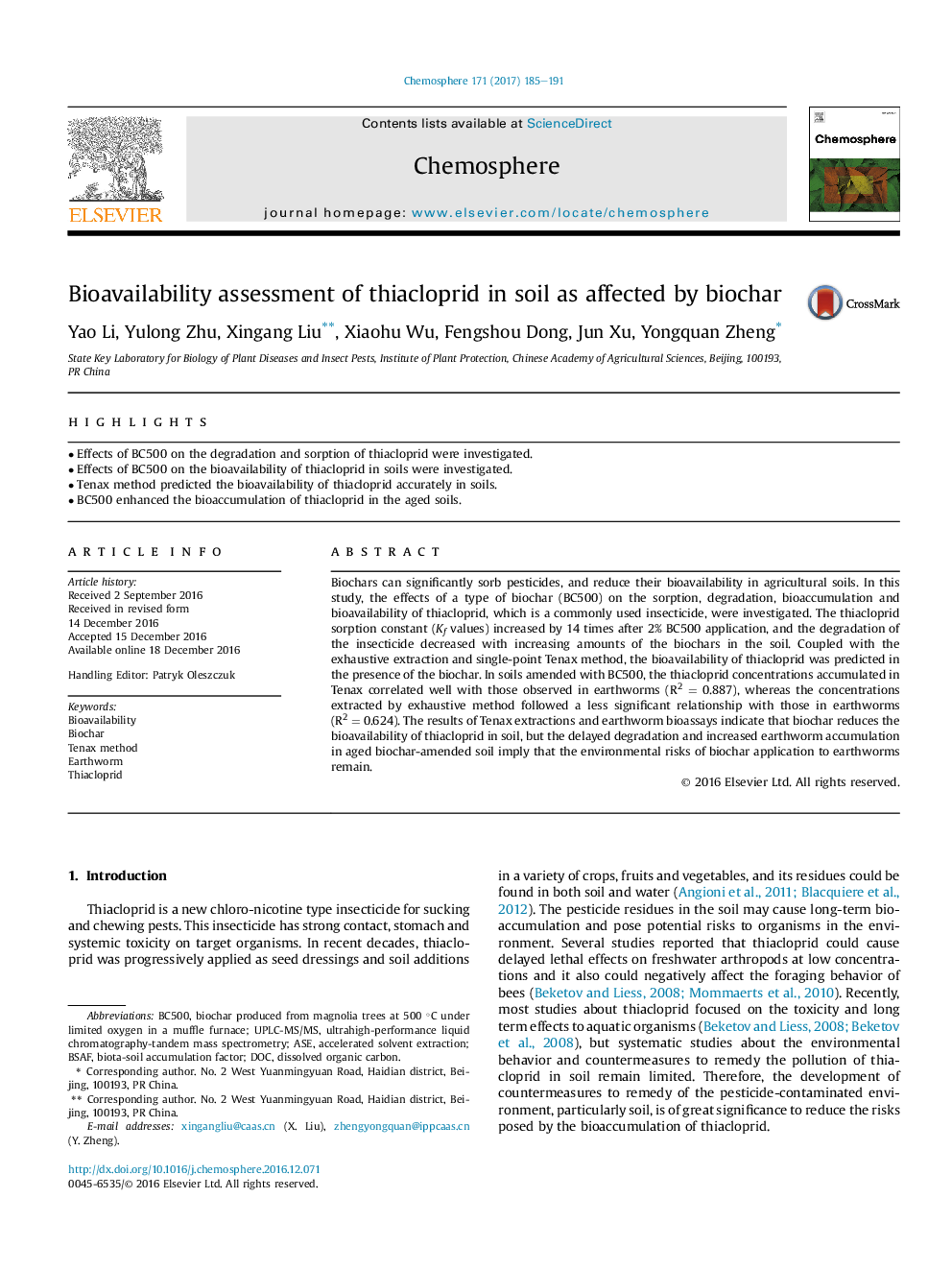| کد مقاله | کد نشریه | سال انتشار | مقاله انگلیسی | نسخه تمام متن |
|---|---|---|---|---|
| 5746329 | 1618800 | 2017 | 7 صفحه PDF | دانلود رایگان |
- Effects of BC500 on the degradation and sorption of thiacloprid were investigated.
- Effects of BC500 on the bioavailability of thiacloprid in soils were investigated.
- Tenax method predicted the bioavailability of thiacloprid accurately in soils.
- BC500 enhanced the bioaccumulation of thiacloprid in the aged soils.
Biochars can significantly sorb pesticides, and reduce their bioavailability in agricultural soils. In this study, the effects of a type of biochar (BC500) on the sorption, degradation, bioaccumulation and bioavailability of thiacloprid, which is a commonly used insecticide, were investigated. The thiacloprid sorption constant (Kf values) increased by 14 times after 2% BC500 application, and the degradation of the insecticide decreased with increasing amounts of the biochars in the soil. Coupled with the exhaustive extraction and single-point Tenax method, the bioavailability of thiacloprid was predicted in the presence of the biochar. In soils amended with BC500, the thiacloprid concentrations accumulated in Tenax correlated well with those observed in earthworms (R2Â =Â 0.887), whereas the concentrations extracted by exhaustive method followed a less significant relationship with those in earthworms (R2Â =Â 0.624). The results of Tenax extractions and earthworm bioassays indicate that biochar reduces the bioavailability of thiacloprid in soil, but the delayed degradation and increased earthworm accumulation in aged biochar-amended soil imply that the environmental risks of biochar application to earthworms remain.
Journal: Chemosphere - Volume 171, March 2017, Pages 185-191
